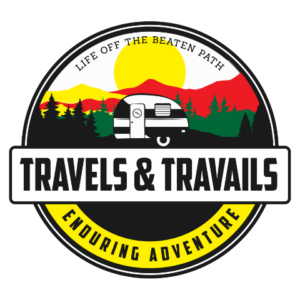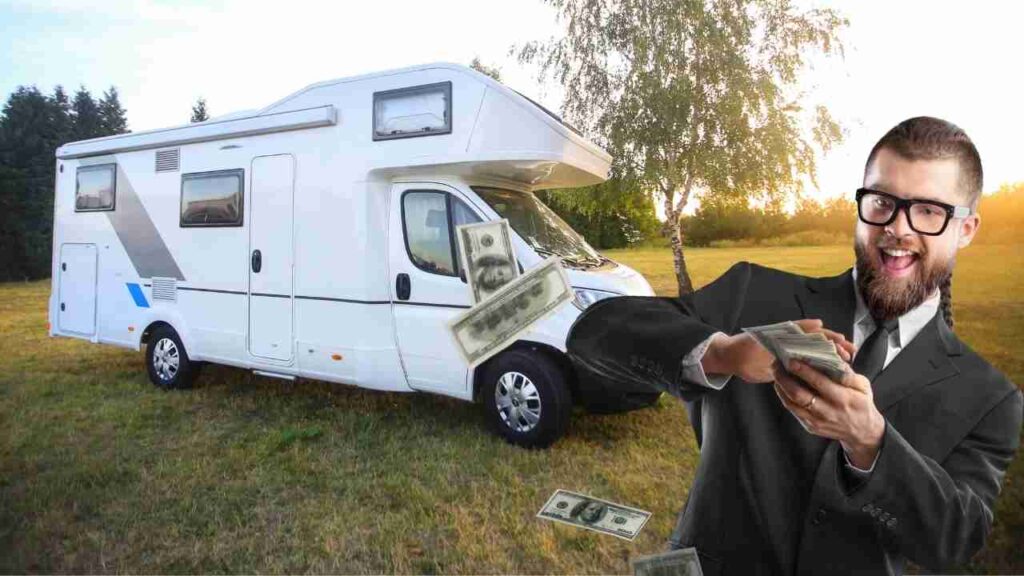
Like buying a new car or a home, an RV is a big investment. As with most big investments, it’s a good idea to do your homework. A good place to start is by asking the question, “Is it financially smart to buy an RV?”
If you’re looking at an RV as a financial investment, buying an RV is not smart. However, if you’re planning on living in your RV full-time, an RV can be a smart investment, especially if you cannot afford a house. If you’re not living in your RV, but use it frequently to travel, it may be a better option than staying in a hotel.
RV Deprecation
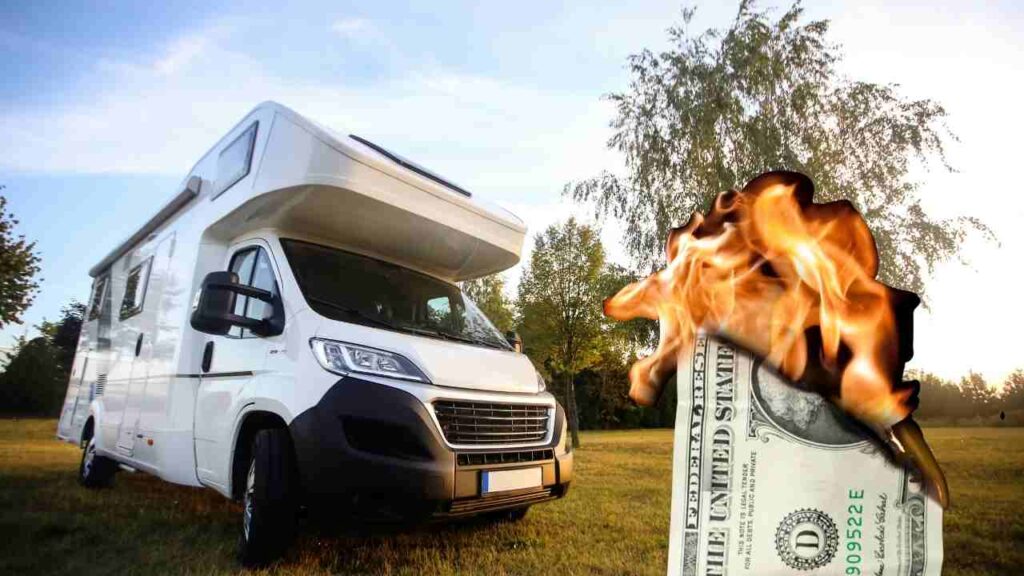
RVs, like cars, depreciate at an alarming rate. An article in camperreport.com says that a new RV loses an average of 21% of its value as soon as you drive it off the lot. That’s a substantial immediate loss.
The truth is that the sweet spot for buying an RV is around the five-year mark. Especially if you can find something that has had good care.
Finance or Pay Cash
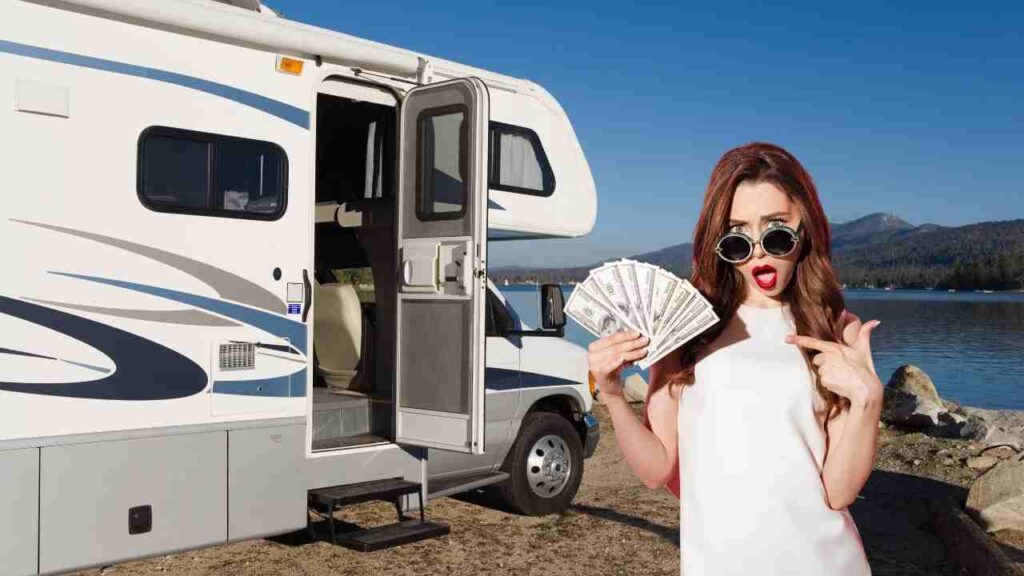
Another good question when considering buying an RV is, “Is it better to buy an RV cash or finance?”
It’s always better to pay cash for an RV than to finance it. For one thing, when you pay cash, you’re not paying interest. This is becoming more of a concern as interest rates go up.
When considering purchasing a used RV, you may find financing challenges. Most lenders don’t want to finance a used RV. It may be possible to get a personal loan to finance your RV. However, the interest rates on personal loans are usually fairly high.
If you do finance your RV, pick the shortest financing period possible. That way, you won’t pay as much interest.
Whether you finance your RV or pay cash, you may be asked if you’d like an extended service contract, life insurance, and gap insurance to name a few. These items are almost always overpriced and undervalued.
It’s important to know that these things are optional. Don’t let any RV dealer tell you that they are required for your loan. They are not required as part of your loan or purchase. Further, any statement that these are requirements to purchase or finance an RV is illegal in the United States according to the Truth in Lending Act.
Renting vs. Buying
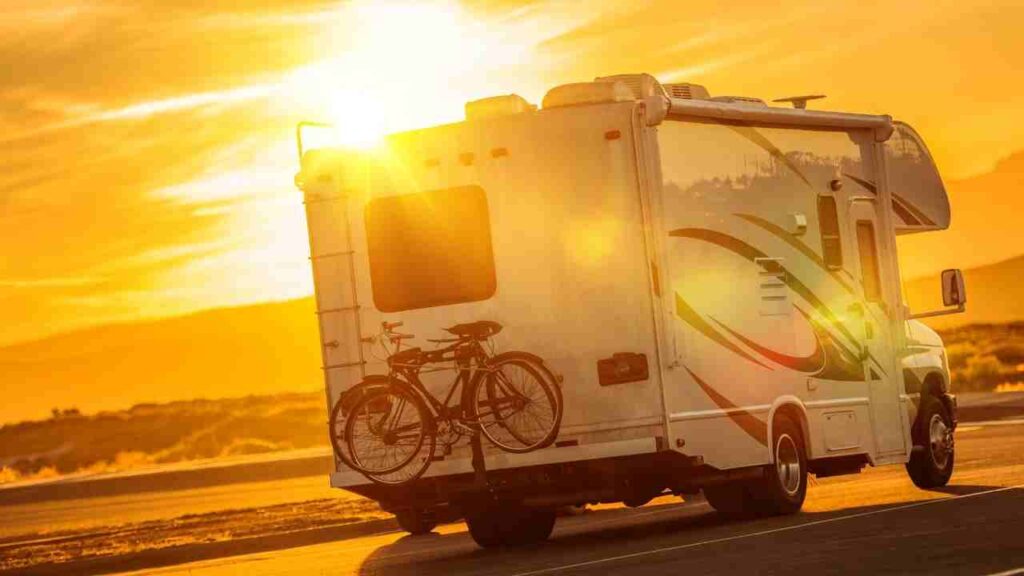
Is it Cheaper to Rent or Buy an RV?
If you are planning to use the RV just for an annual family vacation, it’s cheaper to rent than it is to buy. There are reputable companies, like Outdoorsy or RV Share where you can rent an RV for a week or two.
For example, I see that on RV Share right now, you can rent a 2021 Jayco Redhawk 24B. A two-week rental for an RV that sleeps six will cost $3,630.
If you bought that same RV, it would cost $105,899. In this case, it’s clear that renting an RV will save you money.
Even if you could rent the same RV at the same cost for five years, you would still save money over buying.
If you are considering buying an RV, rent one first to see if you even enjoy it.
Break Even Cost of Owning an RV
Let’s evaluate the break-even cost of owning versus renting.
Using the same example as above, you would have to use your RV for 408 days to break even. If you have had this RV for five years, you would need to use it for about 82 days per year to make it worthwhile to own versus renting. That is a LOT of days.
If you are retired and plan to RV extensively then an RV is a worthwhile investment over renting. Also, as I mentioned, if you plan to live in your RV, you’ll want to buy rather than rent.
If you are considering living in an RV full-time, you’ll want to read the article that I wrote, “7 Considerations When Choosing Between an RV and a House.”
Other Costs
Fuel
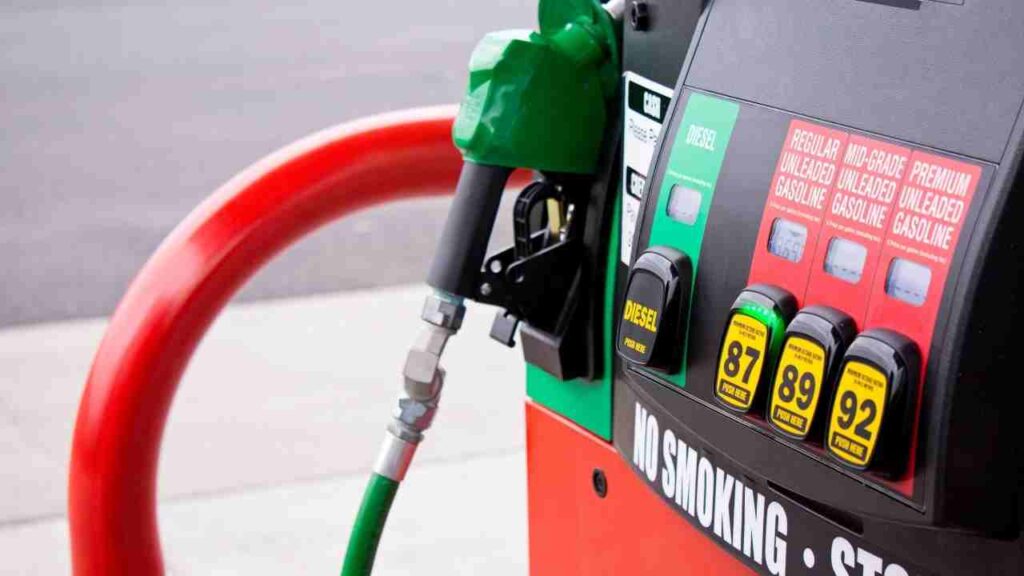
Most RVs are not very fuel efficient. Gas for an RV will be more expensive than gas for your car. With a Class A RV, you might get as little as 8 mpg.
Storage
If you don’t have a place at home to store your RV, you’ll have to pay for RV storage. This can be a significant cost. In our area, Northern California, RV storage for the Jayco that we talked about above can cost between $150-$250 per month!
Repairs, Service, and Upkeep
On the road, RVs undergo earthquake-like forces bouncing up and down on the road. This is hard on even the best-made RVs.
Consequently, RVs require a lot of maintenance. Maintenance includes things like replacing the tires and sealing the roof.
If you have a drivable RV, you’ll also have to maintain the engine in the same way you would a car. You’re RV will need routine oil changes and tune-ups.
And that’s if nothing goes wrong. Even new RVs can have problems. After the pandemic, RV manufacturers began to have supply-chain issues. This was during the time of the RV boom, so demand was way up.
Between the supply-chain issues and the pressure to meet the demand, the quality of many RV manufacturers went down. There were record numbers of people who had to go in for repairs on their brand-new RVs. Fortunately, most repairs were covered under warranty.
If you buy a used RV, you’ll probably have more repairs than you would for a new RV. Used RVs may need new tires right away. Other problems may crop ups as well.
Insurance
When you own an RV, you’ll need RV insurance. While it’s not usually an exorbitant cost, it’s something that you’ll have to add to your RV budget.
Dave Ramsey’s Stance On RV Ownership
What does Dave Ramsey say about buying an RV?
Dave Ramsey has said to a caller, “When you purchase a 5th Wheel will lose 80% of its value in three years.” Clearly, this is not true and there is no research to support this statement. As I mentioned before, RVs do lose value.
Dave Ramsey’s stance has always been to pay cash. The caller mentioned above, asked about financing a new 5th wheel.
Another caller asked about buying an RV (with cash) to travel for a year while she and her husband decided where they wanted to live permanently. In this case, Dave Ramsey agreed that this situation was alright.
And, of course, Dave suggested that the couple purchase a used RV. He also suggested buying an inexpensive RV.
Dave Ramsey believes that living in an RV is not a good lifetime investment compared to buying a house. And that’s because RVs depreciate, whereas houses appreciate.
His opinion is that living in an RV is a good stopgap while you are saving for a house or a piece of property.
Conclusion
There are many reasons to own an RV. However, owning an RV as a financial investment is not one of them.
